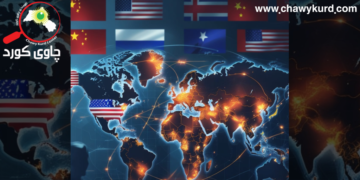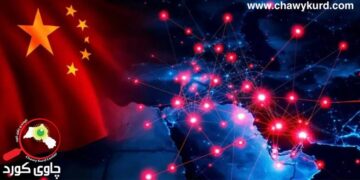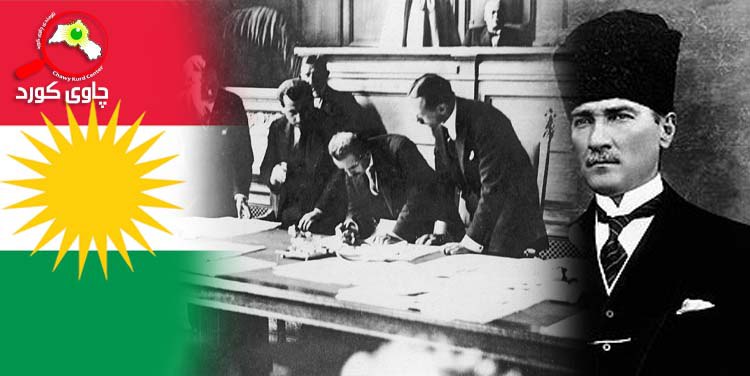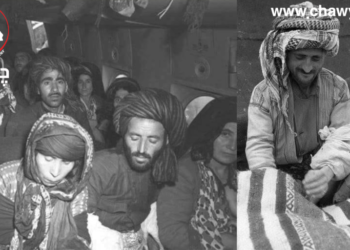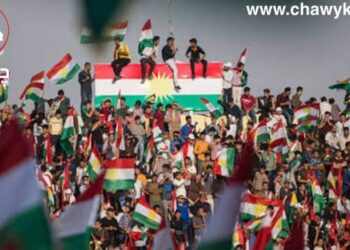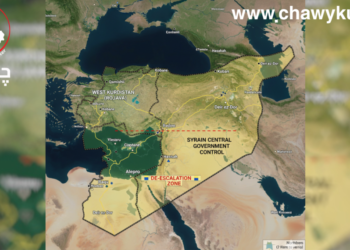Andrew Mango
The Sivas congress had opened in the meantime on 4 September. It was meant to represent Societies for the Defence of National Rights throughout the country – from eastern Thrace to eastern Anatolia. However, only 38 delegates turned up, including Mustafa Kemal and his party. There was no delegate from any of the Kurdish areas. But a former Ottoman governor (and supporter of the Committee of Union and Progress), Mazhar Miifit (Kansu), was present as delegate of Hakkari, and a delegate of Diyarbekir, Ihsan Hamit (Tigrel), arrived after the congress had ended.35 Mustafa Kemal co-opted Ihsan Hamit into the Representative Committee, the permanent executive of the countrywide society which became the source of his authority until he was elected president of the Grand National Assembly on 24 April 1920. As the nine members of the committee elected earlier in Erzurum were transferred en bloc, Sadullah Efendi and Haci Musa of Mutki also became members of the new 16-member nationwide Representative Committee formed at Sivas.36 But they remained sleeping members.
The proclamation issued by the Sivas congress on 11 September 1919, refined the terms used in Erzurum. It declared in its first article that: ‘All Islamic elements living in the abovementioned domains [the Ottoman lands within the armistice lines] are true brothers, imbued with feelings of mutual respect and sacrifice for each other, and wholly respectful of racial and social rights and local conditions’ (Memalik-i mezkurede ya$ayan bilciimle anasu-i islamiye yekdigerine kar§i hilrmet-i miitekabile ve fedakdrlik hissiyatiyle me§hun ve hukuk-u irkiye ve igtimaiyeleriyle §erait-i muhitiyelerine tamamiyle riayetkar oz karde§tirler).37 The wording would seem to imply that Kurdish ethnicity and Kurdish customs would be respected.
Some time during the Sivas congress, Mustafa Kemal was informed of Major Noel’s presence in Malatya and of Ali Galip’s intention of recruiting Kurdish tribesmen to raid Sivas. On 11 September, the day on which the congress issued its proclamation, Ahmet Cevdet, the corps commander in Diyarbekir, was informed by the 3rd Corps in Sivas that the plot had been hatched by the Interior and War ministers in Istanbul. Ahmet Cevdet had by then decided to reinforce his troops in Malatya and had ordered the arrest of the district governor and of Major Noel’s Kurdish companions, although not of Major Noel himself.38 Having heard of the order, Major Noel and his party left Malatya on 10 September. The following day Major Noel noted that Ali Galip had produced a decree {irade) from the Sultan ordering him to raise a force of Kurdish cavalry against Mustafa Kemal in Sivas. Pressed to assist in the project, Major Noel claims to have refused to commit himself publicly. A day later, 12 September, Major Noel noted that Ali Galip had decided to disperse the Kurdish tribal gathering, as the idea of marching on Sivas was too risky.39
As Ahmet Cevdet’s measures, supported by Kazim Karabekir in Erzurum, put a quick stop to Ali Galip’s half-baked and half-hearted plan and secured the flight of Major Noel and his Kurdish companions, Mustafa Kemal sent a trusted and adventurous young officer, Lt. Recep Zuhtii, on a special mission to Malatya in order to rally local support.40 Some Kurdish leaders hastened to send messages of support to Sivas. On 15 September, in a telegram to Cemil Ceto in Siirt, Mustafa Kemal expressed the thanks of the congress for ‘the loyalty of all our Kurdish brothers to this religion and state and their attachment to the sacred institution of the caliphate’ (p.101). The following day, he congratulated the mayor of Malatya for having seen through the plot financed with ‘British gold’ (p. 108).
Mustafa Kemal made maximum use of the Ali Galip plot to discredit the government of Damat Ferit, who had to resign on 30 September 1919 and was succeeded by Ali Riza Pasa, a general sympathetic to the Turkish national movement.41 On 6 November, as elections were being organized for the last Ottoman Chamber of Deputies, Mustafa Kemal sent a circular telegram to governors of five provinces in Eastern Anatolia, regretting claims made in the capital that the Kurds opposed the Turkish national movement, and asking that ‘our Kurdish brothers, who are a noble [constituent] element of [the people of] Eastern Anatolia, should express their support for [Turkish] ‘national forces’ [kuva-yi milliye] and their opposition to the Society for the Rise of Kurdistan’ (p. 155). Messages of support duly followed. Replying on 3 December 1919 to one such message from the much-cited Haci Musa of Mutki, Mustafa Kemal declared that ‘the whole world knows that the noble Kurdish people [Kurt kavm-i necibi] feels a religious attachment to the sacred institution of the caliphate and constitutes an indivisible heroic mass with its Turkish brothers’ (p. 168). On 15 January 1920, Mustafa Kemal thanked a number of Kurdish tribal leaders for the telegrams which they had sent to the government and to representatives of foreign powers in Istanbul to express their solidarity with their Turkish brethren, considering that ‘Kurdistan is an indivisible portion of the Ottoman community’ (p. 192). In another telegram sent on the same day, Mustafa Kemal spoke of Turks and Kurds as ‘two true brothers joining hands in their determination to defend their sacred unity’ (p. 195).
On 20 February 1920, on the eve of the dissolution of the last Ottoman Chamber of Deputies in Istanbul and the subsequent opening of the Grand National Assembly in Ankara, Mustafa Kemal sent a private letter to the exiled Young Turk (CUP) triumvir Talat Pas.a. It began with these words: ‘The national unity created under the aegis of the Society for the Defence of [National] Rights in Anatolia and Rumelia aims at saving Turkey, as bounded by the national borders of the Turks and Kurds [Turk ve Kurt milli hudutlariyle tahdid edilen Tiirkiye’yi] … in accordance with the principles established at the general congresses in Erzurum and then in Sivas.’42
Mustafa Kemal put his views in a more general framework in his first long speech to the GNA on 24 April 1920. The Erzurum congress, he said, had marked out the borders of the country by claiming the territory within the line along which the armistice had been declared on 30 October 1918, a line which encompassed the province of Mosul. This was not only a military, but a national frontier. ‘However it should not be imagined’, Mustafa Kemal went on, ‘that the Islamic elements within this frontier all belong to the same nation. There are within it Turks, Circassians and other Muslims. This is, however, the national frontier of brotherly nations living together and genuinely sharing the same aims. But in addition, every one of the Muslim elements living within the borders of this fatherland has its own specific environment, customs and race, and privileges relating to them have been accepted and confirmed, mutually and in all sincerity. Naturally, these have not been detailed, because this is not the time for it. The matter will be settled and resolved between brothers when our existence is assured…’43 Mustafa Kemal did not mention the Kurds specifically in this passage. But when he returned to the subject of frontiers on 1 May 1920, he said: ‘The gentlemen making up your august assembly are not only Turks, or Circassians or Kurds. They are a sincere gathering of all Islamic elements.’ He went on: ‘There are Kurds as well as Turks north of Kirkuk. We have not distinguished between them.’44
However, the ambiguity about race (irk) persisted. In his speech opening the third session of the GNA on 1 March 1922, Mustafa Kemal said, ‘The people of Turkey is a social entity united in race, religion and culture, imbued with mutual respect and a sense of sacrifice and sharing the same destiny and interests.’45 Nevertheless, the expression ‘people of Turkey’ (Tiirkiye halki) rather than ‘Turkish people’ {Turk halki) is significant, and Mustafa Kemal used it again when welcoming the French writer Claude Farrere in Izmit on 18 June 1922.46
Unlike the congresses of Erzurum and Sivas, the GNA which first came together on 23 April 1920 had genuine Kurdish members. The most colourful was Diyap Aga of Dersim, one of several tribal leaders elected to the assembly. The first constitution (lit. Law of Fundamental Organization, Tefkildt-i Esasiye Kanunu), which the GNA adopted on 20 January 1921 extended the powers and status of local government, which had been established on the French model in the Ottoman state. Article 11 of the constitution declared that provinces were autonomous in local affairs. Provincial councils, elected for two years, were given the right to administer pious foundations, educational and health services, public works, farming and economic affairs generally, in accordance with the laws of the GNA.47 Moreover, the term used for these councils was changed significantly from meclis to f ura. Chosen originally by Ottoman reformers as an indigenously Islamic term for a consultative assembly, §ura acquired after the Bolshevik revolution the connotation of ‘soviet’ (in modern Persian showra, showravi are the standard translations of the noun and adjective ‘Soviet’, respectively). The government which the Ottoman army left behind when it was forced to evacuate Kars after the armistice was called ‘Kars Milli Islam §urasi’, which, I believe, can be rendered as Kars National Muslim Soviet. There was another example of Soviet inspiration in the 1921 constitution: the term used to designate the Ankara government was ‘/era vekilleri heyeti\ an exact translation of ‘committee of executive commissars’ (shortened in Russian as Ispolkom), the name of the Bolshevik government in Moscow. In French texts vekil was translated as commissaire (Halide Edib in The Turkish Ordeal uses the word ‘Commissary’).
Mustafa Kemal referred to the constitutional provisions on local government in the instructions he sent to Nihat Pasa (Anilmis), who had been appointed commander of the southern (El-Cezire) front in June 1920.48 The instructions deserve to be quoted in full:
- Our domestic policy requires the gradual establishment in the whole country and on a vast scale of local administrations in which popular masses will be directly and effectively involved. As for areas inhabited by Kurds, we consider it a necessity both of our domestic and of our foreign policy to set up a local government gradually.
- The right of nations to determine their destinies by themselves is a principle accepted worldwide. We too have accepted this principle. It is expected that the Kurds will by that time have completed the organization of their own local government, and that their leaders and notables will have been won over by us in the name of this objective; when they express their votes, they should, therefore, declare that they prefer to live under the administration of the Grand National Assembly, where they are already masters of their own destiny. The command of the El-Cezire front is responsible for directing all the work in Kurdistan in line with this policy.
- The general lines of accepted policy include such objectives as to raise by means of armed clashes to a permanent level the animosity of the Kurds in Kurdistan against the French and particularly the British on the border with Iraq, to prevent any accord between the Kurds and foreigners, to prepare gradually for the establishment of local government bodies and thus win for us the hearts of the Kurds and to strengthen the links which bind Kurdish leaders to us by appointing them to civil and military positions.
- Domestic policy in Kurdistan shall be coordinated and administered by the command of the El-Cezire front. The front command will address its communications on the matter to the office of the president of the GNA. Leading civil officials will report on the subject to the front command, since the latter will regulate and cordinate action by provincial authorities.
- The El-Cezire front command shall propose to the government such administrative, judicial and financial changes and reforms as it deems necessary.49
Nihat Pa§a did not win the hearts and minds of Kurdish notables, at least not of all Kurdish notables, in his area. Some of them complained to the Assembly in Ankara, accusing him of high-handed and illegal activity. Having heard his defence, the judicial committee of the Assembly reported that no action should be taken. The report was accepted on 22 July 1922, in spite of loud protests by some deputies, notably Feyzi Efendi of Malatya. Nihat Pas,a was, however, transferred to Ankara where he was appointed president of the military court of appeal.50 Mustafa Kemal did not intervene, as he had done in an earlier case concerning ‘bearded’ Nurettin Pa§a who, as commander of the central army, had repressed the rising of the Kocgiri Kurds on the northern edges of the Dersim mountains between April and June 1921.
Nurettin Pasa’s severity and, particularly, his use of the irregulars led by the notorious Lame Osman (Topal Osman) of Giresun, were condemned in a motion by Emin Bey, deputy for Erzincan in whose constituency the rising had taken place. Speaking at a secret session of the assembly on 4 October 1921, Emin Bey declared that the punitive action taken against the people of Dersim would be unacceptable even for ‘barbarians in Africa’, and that such atrocities had not been committed even against the Armenians.51 The Assembly decided to send a commission of inquiry, which was also to look into the consequences of Nurettin Pasa’s behaviour during the deportation of Greeks from Samsun. The Assembly wanted to put Nurettin Pa§a on trial, but in the secret session on 16 January 1922, Mustafa Kemal argued that although Nurettin had been relieved of his command, the accusations against him needed further investigation. This was accepted,52 and the trial never took place. There was no love lost between Mustafa Kemal and Nurettin, but, as Mustafa Kemal said in a telegram to Kazim Karabekir on 13 November 1921, he was worried by attacks in the assembly against military commanders he needed for the prosecution of the war.53
Robert Olson54 says on the strength of British intelligence reports that, in addition to the Kocgiri commission, another commission drew up a bill concerning the administration of Kurdistan, which, it was decided, was to be debated at a secret session on 10 February 1922. The bill, whose text is given in British documents, was apparently rejected by 373 votes to 64, most Kurdish deputies voting against it. David McDowall speaks of a debate on Dersim at a secret session of the GNA on 9 October 1921, followed by a decision on 10 February to establish ‘an autonomous administration for the Kurdish nation in harmony with their national customs’.55 But according to the published minutes, there were no secret sessions of the GNA either on 9 October 1921 or on 10 February 1922. There was a debate on the Koggiri rebelion (and Dersim) on 3 October, when a five-member committee of inquiry was elected. The debate was continued on 4 and 5 October. On the last day, the commissioner (or minister) for the Interior, Refet (Bele) Pa§a, argued against requests he had received from the people of Dersim that their district should acquire separate administrative status, and said that it was much better off as part of the richer province of (Mamuret) Elaziz.56 On 16-17 January 1921, when the GNA debated the possible committal for trial of Nurettin Pasa, a member of the committee of inquiry, Yusuf Izzet Pasa, said that the committee had completed its work, but was awaiting the return of two of its five members to draw up its report. In the meantime, he claimed that Nurettin Pasa had not exceeded his authority.57 There is no reference in the debate either to a second committee or to any autonomy plan for Kurdistan.
The report of the committee of enquiry seems to have sunk without trace. Neither is there any reference to any autonomy plan in the long defence submitted by the El-Cezire front commander, Nihat Pa§a, who says simply that ‘the provinces of Kurdistan can be won over to the national government only by the hand of totally uncorrupt officials’.58 Unless evidence to the contrary is found, I would suggest that the British reports quoted by Olson and McDowall concerning the existence of a precise Turkish plan for the autonomy of Kurdistan are inaccurate, like so many other British intelligence reports. The information was probably obtained from Kurdish sources, possibly Seyyit Abdulkadir, in Istanbul and was based either on documents having no legal validity, or simply on wishful thinking.
That Mustafa Kemal had not changed his mind – and continued to think of Kurdish autonomy in the framework of local government throughout the country – emerges clearly from his reference to the Kurds in the briefing he gave to journalists in Izmit on 16/17 January 1923, at a time when the Lausanne conference was in recess. Once again, the statement deserves to be quoted in full. Mustafa Kemal said:
There can be no question of a Kurdish problem, as far as we, i.e. Turkey, are concerned. Because, as you know, the Kurdish elements within our national borders are settled in such a way that they are concentrated only in very limited areas. As their concentration decreases and as they penetrate among Turkish elements, a[n ethnic] frontier has come about in such a way that if we wished to draw a border in the name of Kurdishness [Kiirtliik] it would be necessary to destroy Turkishness and Turkey. It would, for example, be necessary to have a frontier extending to Erzurum, Erzincan, Sivas and Harput. One should not forget also the Kurdish tribes in the Konya desert. Therefore, rather than envisage Kurdishness as such, local autonomies of a sort will in any case come about in accordance with our constitution [lit. Law of Fundamental Organization]. As a result, wherever the population of a district [liva] is Kurdish, it will govern itself autonomously. Aside from this, whenever one speaks of the people of Turkey [Tiirkiye’nin halki], they [i.e.the Kurds] should also be included. If they are not included, it is always possible that they would make a grievance of it. Now, the Turkish Grand National Assembly is made up of empowered representatives both of Turks and of Kurds, and the two elements have joined their interests and destinies. They know that this is something held in common. To try and draw a separate frontier would not be right.59
The same line was taken by Ismet (inb’nii), as head of the Turkish delegation at the Lausanne conference, as he defended his country’s claim to the province of Mosul, arguing that the government of Turkey was the government of the Kurds as well.60 But I think it would be wrong to attribute Mustafa Kemal’s attitude to the governance of the Kurds of Turkey to the hope of regaining Mosul, for in the same briefing to journalists in izmit, he expressed his personal opinion that it was impossible to take Mosul by war, in other words by fighting the British (Musul’u harben almak gayr-t mumkundiir), even although he said that the British wanted to set up a Kurdish government in Mosul, and that, if they did so, the idea might spread to the Kurds within Turkey’s borders.61
In an immensely long address to the people of Izmir on 2 February 1923, Mustafa Kemal referred once again to Turkey’s multiethnic character, saying, ‘There is a primary element which has established the Turkish State. Then there are [other] elements which have joined their endeavours and their histories with those of this primary element. There are citizens from these elements too.’62 The example which Mustafa Kemal gave this time was not Circassians or Kurds, but Jews, who certainly came more readily to the mind in Izmir, since their neighborhood in the city had survived the great fire the previous year, and the Jewish community had allowed delegates to the first Economic Congress, held later that month, to lodge in its orphanage.63
The Turkish Socialist politician and publicist Dogu Perincek who has drawn our attention both to Mustafa Kemal’s instructions to Nihat Pasa and to his Izmit statement on the Kurds, wonders what happened after 1923 to prevent the incorporation of Mustafa Kemal’s ideas in the 1924 constitution.64 Why, in other words, was not a solution sought within the framework of the constitutional provisions on local government and on the basis of the recognition of the Kurds and of other ethnic elements in Turkey?
Elections were held soon after Mustafa Kemal’s statements in izmit and Izmir. Mustafa Kemal opened the first session of the second Grand National Assembly on 13 August 1923 with a speech in which he stressed the establishment of order as the first duty of the government. But he also said that the new Turkish state was a people’s state.65 The Assembly elected a committee to draw up a new constitution (Kanun-u Esasi Enciimeni). Its chairman was the journalist Yunus Nadi, a Turkish nationalist with radical ideas – ideas which were left-wing in the sense that Fascism was, at the start, a left-wing movement. Another influential member was Ahmet Agaoglu, an intellectual born in Azerbaijan and formerly active in the CUP. He tended to a liberal nationalist position. Sabiha (Sertel), who describes herself at the time as a Utopian Socialist and who had newly returned from the United States, observed the discussions of the committee when she went to Ankara to join her husband Zekeriya, who had been appointed Director General of the Press.66 Mustafa Kemal, she says, often took part in the work of the constitutional committee, which met in the stationmaster’s house in Ankara. According to Sabiha Sertel, there was an intense argument on the article 4 (of the 1921 constitution) which stated ‘The Grand National Assembly is made up of members elected by the people of the provinces’.67 It appears from her account that the word ‘province’ was taken to mean ‘chief town of a province’, and that objectors argued that the people of smaller towns and villages should also be represented. She argues that behind the objections lay the fear that the provincial elites – military commanders, notables, landowners – were largely in Mustafa Kemal’s pocket and that the members of the assembly they would elect would strengthen his position as a dicator. However that may be, the text was changed to ‘the Grand National Assembly of Turkey is made up of deputies elected by the nation in accordance with the relevant law’.68
Sabiha Sertel also claims that she complained to one of Mustafa Kemal’s close companions, Mazhar Miifit (Kansu), who was at the time deputy for Denizli,69 saying that there was nothing in the constitution about land reform and workers’ rights, to which Mazhar Miifit replied: ‘Mustafa Kemal wants to carry out many reforms. On land reform, he has talked here to landowners [aga], particularly Kurdish landowners and to Kurdish deputies such as Feyzi Bey.70 This problem of reform is very difficult. It is impossible to explain land reform to the agas. Tackling the reform means losing all the agas and notables. So for the moment we have closed the book on land reform.’71













